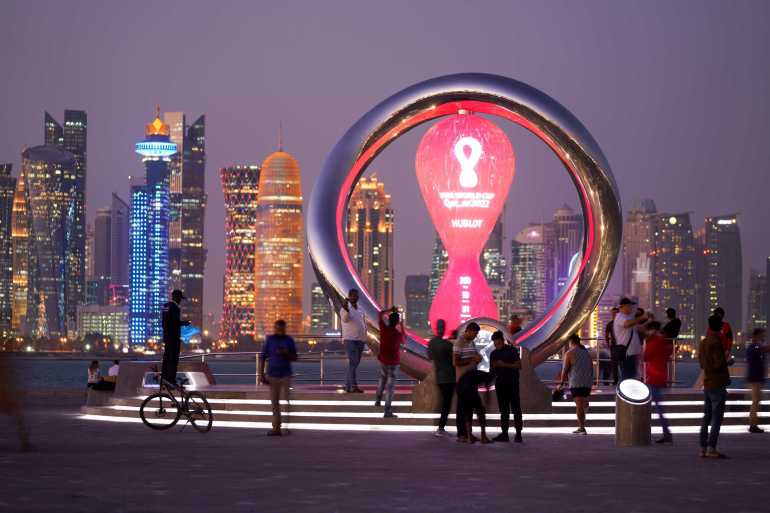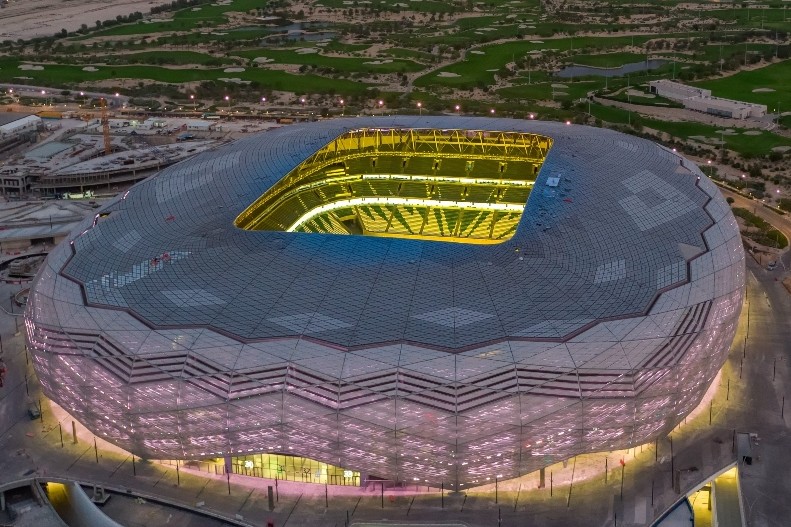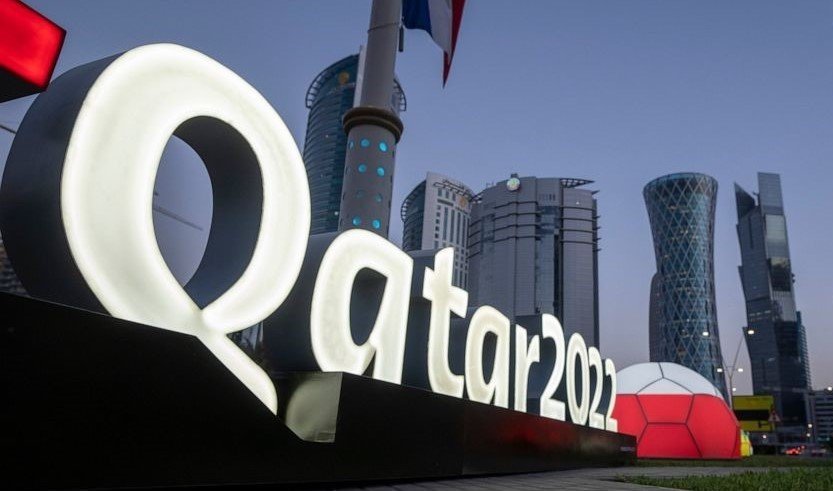Showing solidarity or superficial gestures
In the case of the Qatar World Cup, the relevant parties have had a long lead-in time to pre-empt the difficult questions and fine-tune the official party line.
One of the first movers in this space, was the Danish Football Association (DBU). In late September, the DBU generated international headlines when it launched the official Denmark World Cup kit, designed to honour migrant workers killed during the construction work for the tournament. The launch included a black option; “the colour of mourning”, according to its kit manufacturer Hummel.
Since then, Denmark and some of its European neighbours, including England, have committed to wearing an anti-discrimination ‘One Love’ captain’s armband throughout the tournament, in defiance of Qatar’s criminalisation of same-sex relationships. Inevitably, FIFA will move to block the gesture, but the English FA has indicated it is prepared to incur any resulting sanctions. The England squad has also invited migrant workers to visit its World Cup training base and has endorsed the idea of compensation for the families of those killed on World Cup-related construction projects.
The French Football Federation (FFF) was one of eight European countries to vote in favour of Qatar hosting the 2022 World Cup. In addition, the French Government’s close political links with the Qatar Royal family are well documented. However, in recent days, the Mayor of Paris has announced a rather tepid big-screen boycott of the World Cup, citing Qatar’s human rights and environmental record.
Overall, the reaction to these gestures has been at best mixed. Some have welcomed these public displays of solidarity, meanwhile others have dismissed them as tokenistic and misdirected. Certain quarters argue that anything short of a boycott does little to move the needle on important human rights abuses.
Given the myriad of different views on the matter, it prompts the question of how can football associations, their players, managers and even sponsors ever hope to get it right?
England manager Gareth Southgate is one of the more accomplished football communicators on highly emotive social issues. In a recent media interview, he argued that the England team was going to be criticised no matter what action it took, claiming that “there is a limit to what we can affect”.




